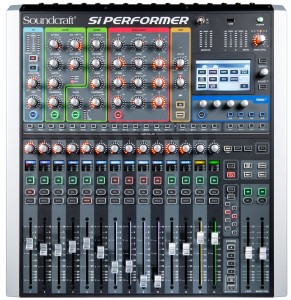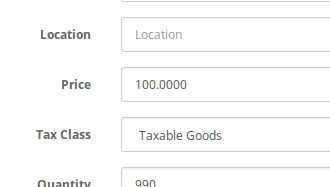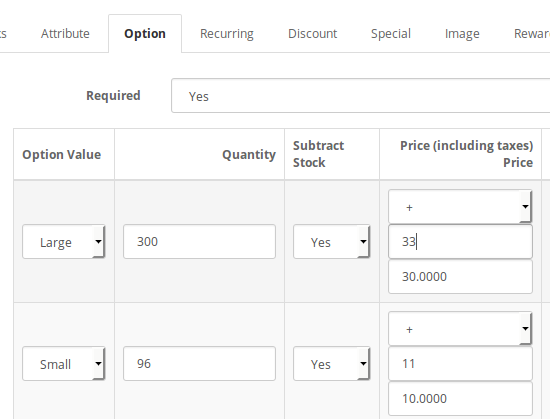I’m an amateur sound guy. On the weekends I do the sound for a church with a small band – Drums, Bass, Acoustic guitar, a couple of vocals, and electric guitar on a good day. I know as much as I need to know to keep the band and the congregation happy. I’ve never studied audio. I listen to MP3s and I don’t like records.
So when I was invited to a Digital Console Showcase in a nearby church where they would be comparing the sound quality of the mixers in a blind test – I figured I would barely notice any difference, unless the quality of a mixer was really bad. Well, it turns out that I can hear the difference between the mixers – and that my observations were pretty much on par with the group. I’m on the lookout for a 16 channel digital mixer.
Here’s what we did. We had a set wave file with lots of different types of music and speech in a short clip. We had each listened to it beforehand. Then, the file was played at nominal gain with no tuning through five different desks: the Roland M200i, the Behringer x32, Midas m32, Yamaha QL5, Soundcraft Performer SI2, and Allen & Heath’s GLD 80 – though only the operator knew which mixer was number 1, 2, 3, 4 or 5. Predictably nobody really noticed a difference between the desks (or at least consistently across the group) and neither did I.
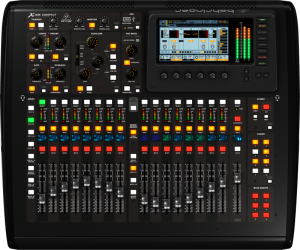 Behringer x32 compact |
|
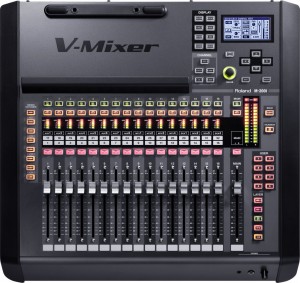 Roland m200i |
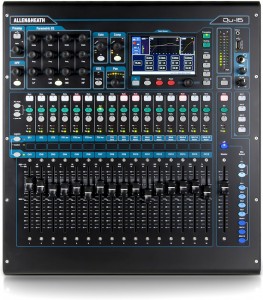 Allen & Heath QU16 |
The next step was to play with the EQ. The sound file was then played through the mixers with different eq settings. +10dB @5k Q1, +10dB @1k Q2 and finally +10dB @150 Q1. We listened to see which mixers gave the most musical or transparent results for the increase in gain. At this point i started to notice differences in the sound between the mixers. I could swear that the EQ change on the first mixer had a much harsher effect. In the 1K test the fourth desk sounded awful – and I knew by the reactions of those around me that I wasn’t wrong. Sadly, we were told later that there was an error with that mixer in that test.
Lastly we listened to the track with heavy compression. 5:1 Attack 15mS Rel 100mS reducing 10db. In this test I could definitely hear that some mixers just didn’t do a great job of compressing the sound without altering it.
The results were surprising to me. For example the Behringer x32 performed quite well – about on average with the other mixers – proving that the inclusion of Midas pre-amps with the mixer have made a big difference given the company’s less-than-satisfactory reputation for audio quality. That said, most people (except me) noted it sounded poor in the compression test. Maybe that’s something I need to listen out for more.
No desk stood out particularly above any other, and (if you exclude the botched 1k test results) no desk stands out as particularly poor either. Here they are:
As a point of interest we listened to the sound file played through all 5 mixers with the gain pushed to solid red. Needless to say, they all sounded bad, and it wasn’t really a very measurable test anyway.
